Hamas, undeterred, sat on the sidelines as Islamic Jihad and Israel slugged it out
Though Gaza’s ruling terror group has shown it can impose its will on other factions, in recent rounds of fighting Israel has not forced it to exercise its sovereignty
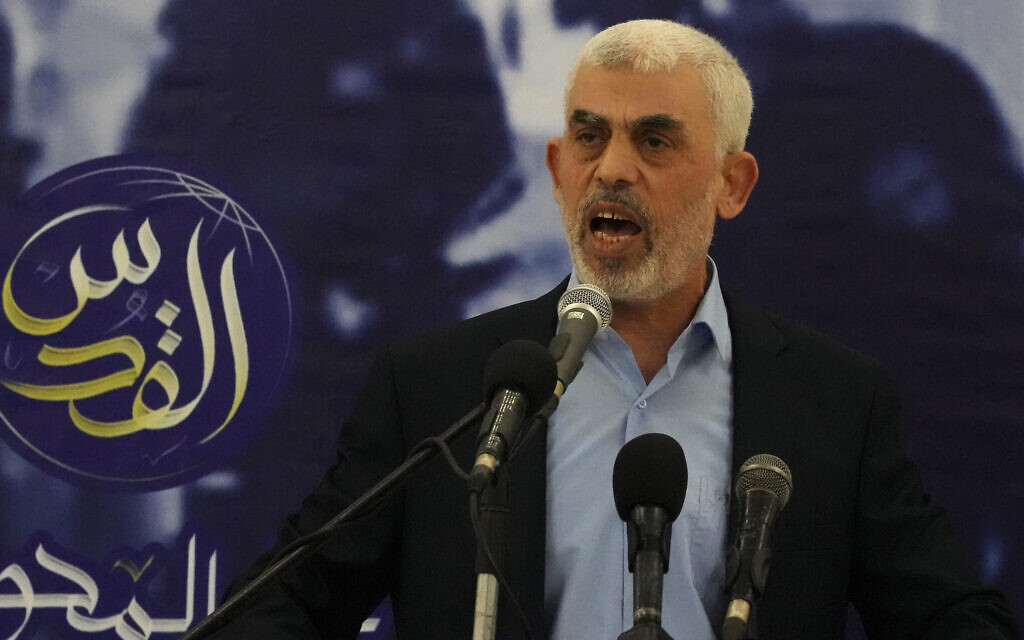
For the third time since Operation Black Belt in 2019, Hamas sat out a fight between Israel and Palestinian Islamic Jihad.
Though it maintained a “Joint Operations Room” with other groups and put out a statement with Islamic Jihad about resistance, the Gaza-ruling terror group seemed to be content watching from the sidelines and letting the smaller organization bear the brunt of Israeli strikes during the five days of conflict that ended Saturday night.
The Netanyahu government sought to portray the terrorist group’s inaction as evidence of helplessness. Hamas used to dictate everything that happened in the Gaza Strip, one senior Israeli official said on Saturday; now it can’t even control the much smaller Islamic Jihad.
“The recent round shows the weakness of Hamas,” the official claimed.
But Hamas seemed comfortable with the situation. It suffered little, while its main rival in the Strip lost commanders and materiel.
“Its position improved after this round,” argued Kobi Michael, a senior researcher at the Institute for National Security Studies and past head of the Palestinian desk at the Strategic Affairs Ministry.
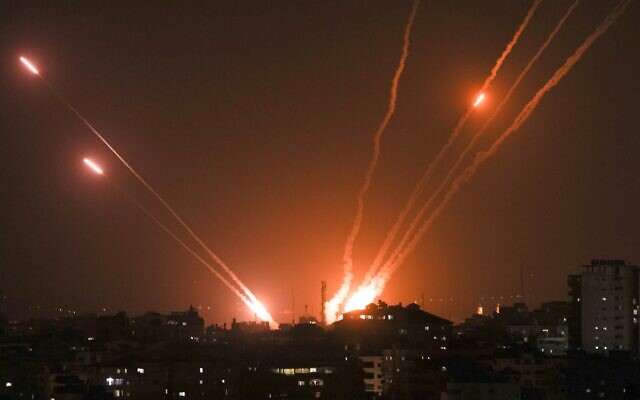
Hamas’s headache
Islamic Jihad is a “headache” for Hamas, said Michael. “It’s a rival. Islamic Jihad poses a challenge for Hamas.”
The two groups have very different priorities that are often in direct conflict.
Islamic Jihad is a classic terrorist group, with the fight against Israel its only significant priority. It is also entirely dependent on Iran, which has an ongoing and overt desire to see its proxies carry out attacks on Israel.
Hamas, on the other hand, has an interest in maintaining quiet in the Gaza Strip. It is trying to see through some sort of economic recovery after its 2021 fight with Israel, while also building its military capabilities for the next round.
Unlike Islamic Jihad, Hamas rules territory and has responsibility for over two million inhabitants, and so has much more to lose from extended fighting with Israel.
It also has a long-term goal of building legitimacy both within Palestinian society and in the region, and replacing Fatah as the leading faction of the Palestinian national movement. At times, firing rockets at Israel might serve that aim, but annual destruction and bloodletting in Gaza generally undermines its march toward credibility.
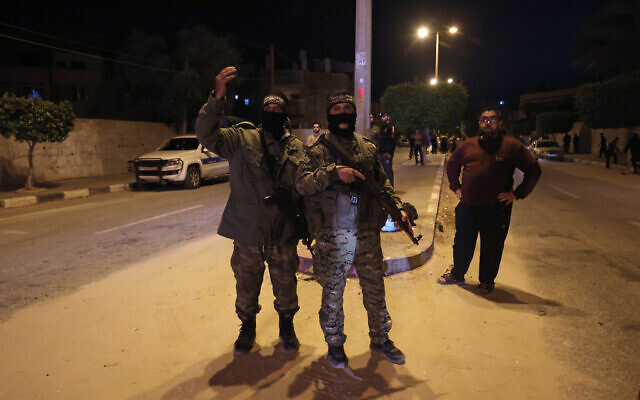
Hamas is also less susceptible to Iranian pressure than Islamic Jihad.
While the group’s ties with Tehran suffered in the wake of Syria’s crackdown on its own people — which Hamas condemned as Damascus in turn accused Hamas of supporting rebel groups — they have since been restored. But that doesn’t mean Iran can tell it what to do. Hamas has a much richer and more diverse set of relationships with foreign powers than does Islamic Jihad.
Turkey still refuses to expel officials and units from the terror group in the country, even after the recent rapprochement between Ankara and Jerusalem. Qatar maintains close ties with Hamas, especially through its financial support in Gaza, and the group also enjoys growing relationships with Russia and China.
Hamas is also not a monolith. Though much of its foreign political leadership — men like Ismail Haniyeh and Saleh al-Arouri — are close with Iran, its leader on the ground in Gaza, Yahya Sinwar, enjoys extensive ties with the Egyptian regime, which seeks quiet in the Strip.
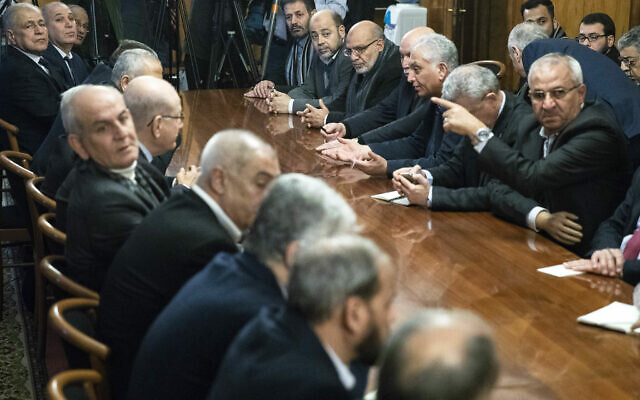
Happily on the fence
Given Hamas’s desire for quiet and legitimacy, why did it allow Islamic Jihad to set off several days of fighting?
“Hamas, if it wants to, can impose order on the Strip,” said Michael Milshtein, Palestinian affairs expert at the Moshe Dayan Center for Middle Eastern and African Studies. “It decided it wants to sit on the fence. It feels very comfortable there.”
Kobi Michael, of the INSS, agreed that watching Israel and Islamic Jihad fire away at each other for a few days played into Hamas’s hands.
“It’s quite pleased with the blows Islamic Jihad suffered from Israel,” he said, “because it weakens Islamic Jihad and gives Hamas more quiet and freedom of action within the Gaza Strip.”
That doesn’t mean Hamas did nothing beyond offer rhetorical support. It well may have given Islamic Jihad some rockets and allowed them to be launched from Hamas positions.
Milshtein said Israel should have imposed “strict conditions” on Hamas rather than let it evade punishment.
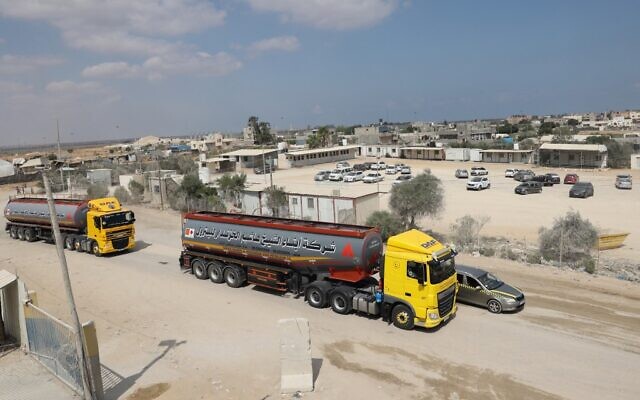
Since Operation Guardian of the Walls in 2021, Israel and Hamas have had an understanding. Israel allows thousands of workers from Gaza into the country every day — the number is currently 17,000 — and allows money for public sector salaries to reach the Strip from abroad.
In exchange, Hamas is meant to guarantee that none of the Gaza-based terror groups fire rockets or anti-tank missiles at Israel.
Despite the fact that it didn’t stop Islamic Jihad from attacking Israel, Hamas’s economic privileges were not rescinded, and on Sunday morning, hours after a ceasefire with Islamic Jihad came into effect, the Israel Defense Forces announced it would be reopening the border crossings into the Strip.
Israel, as it has after every inconclusive bout against Gaza-based terrorists since 2009, may claim its deterrence was enhanced, but there is little evidence Hamas is more fearful of Israel’s response if it steps out of line in the future.
“We’re not operating intelligently,” Milshtein charged. “We should say, from now on, if you allow rocket fire, if you stir things up in the West Bank, you won’t have workers, you won’t have salaries. Sinwar knows we’re not serious.”
There's no paywall on The Times of Israel, but the journalism we do is costly. As an independent news organization, we are in no way influenced by political or business interests. We rely on readers like you to support our fact-based coverage of Israel and the Jewish world. If you appreciate the integrity of this type of journalism, please join the ToI Community.

We’re really pleased that you’ve read X Times of Israel articles in the past month.
That’s why we started the Times of Israel eleven years ago - to provide discerning readers like you with must-read coverage of Israel and the Jewish world.
So now we have a request. Unlike other news outlets, we haven’t put up a paywall. But as the journalism we do is costly, we invite readers for whom The Times of Israel has become important to help support our work by joining The Times of Israel Community.
For as little as $6 a month you can help support our quality journalism while enjoying The Times of Israel AD-FREE, as well as accessing exclusive content available only to Times of Israel Community members.
Thank you,
David Horovitz, Founding Editor of The Times of Israel









